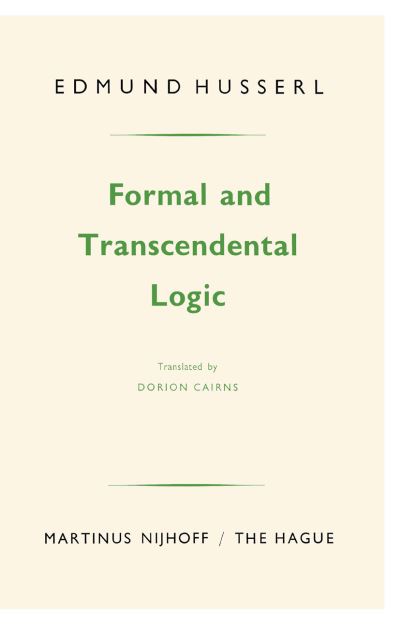
2 called in question, then naturally no fact, science, could be presupposed. Thus Plato was set on the path to the pure idea. Not gathered from the de facto sciences but formative of pure norms, his dialectic of pure ideas - as we say, his logic or his theory of science - was called on to make genuine 1 science possible now for the first time, to guide its practice. And precisely in fulfilling this vocation the Platonic dialectic actually helped create sciences in the pregnant sense, sciences that were consciously sustained by the idea of logical science and sought to actualize it so far as possible. Such were the strict mathematics and natural science whose further developments at higher stages are our modern sciences. But the original relationship between logic and science has undergone a remarkable reversal in modern times. The sciences made themselves independent. Without being able to satisfy completely the spirit of critical self-justification, they fashioned extremely differentiated methods, whose fruitfulness, it is true, was practically certain, but whose productivity was not clarified by ultimate insight. They fashioned these methods, not indeed with the everyday man's naivete, but still with a naivete of a higher level, which abandoned the appeal to the pure idea, the justifying of method by pure principles, according to ultimate apriori possibilities and necessities.
| ISBN: | 9789024720521 |
| Publication date: | 30th November 1977 |
| Author: | Edmund Husserl |
| Publisher: | Springer an imprint of Springer Netherlands |
| Format: | Paperback |
| Pagination: | 340 pages |
| Genres: |
Phenomenology and Existentialism Philosophy: logic |